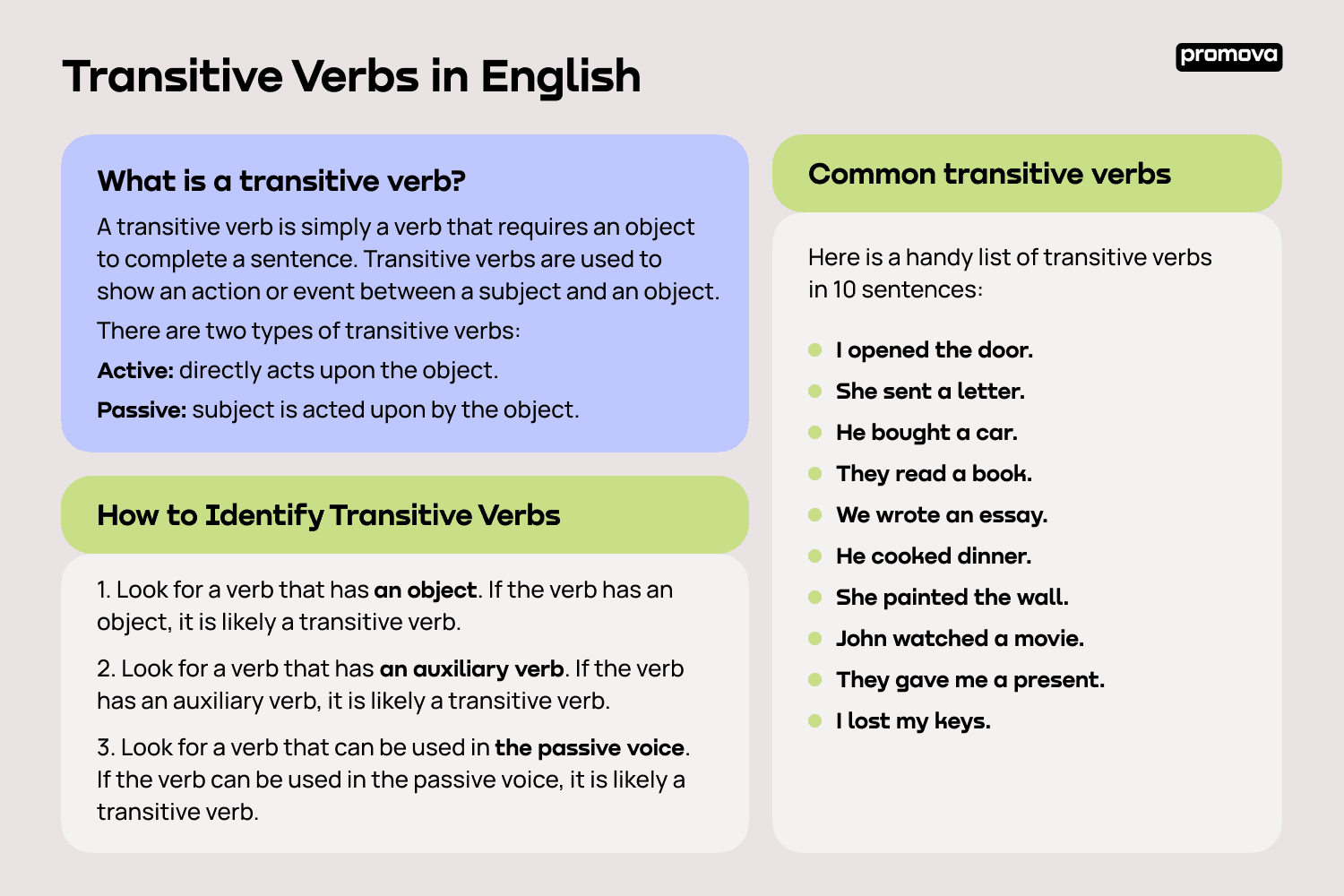Transitive verbs are an essential part of the English language. They play a crucial role in forming sentences and conveying actions. Understanding what transitive verbs are and how they function is key to mastering the language.
Transitive verbs are verbs that require a direct object to complete their meaning in a sentence. In other words, they act on someone or something. Without a direct object, the sentence would not make sense. For example, in the sentence “She ate,” the verb “ate” is a transitive verb because it requires an object to complete the action.
Definition of Transitive Verb
A transitive verb is a verb that requires a direct object to complete its meaning in a sentence. It is an action verb that acts on someone or something, and without a direct object, the sentence would not be complete. Transitive verbs are a crucial part of sentence structure and help convey actions clearly.
Transitive verbs can be both physical actions, such as “throw,” “hit,” or “eat,” and mental actions, such as “believe,” “understand,” or “remember.” In each case, the verb requires a direct object to make sense. For example, in the sentence “He threw the ball,” the verb “threw” is transitive because it acts on the direct object “the ball.”
It is important to distinguish transitive verbs from intransitive verbs, which do not require a direct object to complete their meaning. Intransitive verbs can stand alone in a sentence and still make sense. For example, in the sentence “She sleeps,” the verb “sleeps” is intransitive because it does not need a direct object to complete the action.
When using transitive verbs in sentences, it is essential to ensure that the direct object is placed correctly to convey the intended meaning clearly. Without a direct object, the sentence may be incomplete or ambiguous. Understanding the role of transitive verbs in sentence structure is key to effective communication in English.
In conclusion, transitive verbs are verbs that require a direct object to complete their meaning in a sentence. They are essential for conveying actions and forming clear, coherent sentences. By understanding the definition and function of transitive verbs, you can improve your language skills and communicate effectively in English.
